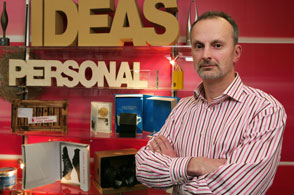Maybe it's something to do with Mark Earl's theory on our natural herding instincts that so many agencies tell me that they are now ‘integrated'. And in the rush to join the herd some believe they can just say ‘We're Integrated' and leave it there.
I'm fascinated by this insecurity that agencies should feel exposed when stepping outside the herd. I see it in so many PowerPoint slides across the country.
The simple question ‘what are you integrating?' is normally the most revealing and you find that many agencies are still, in fact, specialist but working across all channels.
So why do some specialist discipline agencies, who are outstanding at what they do, feel compelled to join this ‘integrated herd'?
The frustration is that when I scratch beneath the surface of agencies setting themselves up to be capable of working across all disciplines, I'm often faced with USPs no more compelling than ‘price' and ‘convenience'.
I thought we dealt with a bit more emotion than that in this business.
Agencies' obsession with the ‘integration' label demonstrates nothing more than the cyclical nature of our business. From the full service agency model of yesteryear, through its break-up into ever more specialist agencies and now back once again to agencies comfortable in any discipline and any channel.
Is that it? Is this all we have achieved? I hope not.
Why, you might ask, am I agonizing over what definitions we should give our flocks? It's for the simple reason that the client is looking to pick one of you from the crowd and sometimes all this herding together actually makes it very difficult for them. Especially if, chameleon like, agencies keep changing colour so they don't get excluded or eliminated from pitches.
But the biggest issue for me is that all this obfuscation does a complete disservice to the talents at your disposal.
Back in 2001 and 2002, the debate was all about ‘media neutral planning,' driven in particular by the Account Planning Group. The ambition was to free ourselves of the post-rationalized behaviour we had slipped into, whereby agencies gave the answer as ‘advertising' or ‘direct mail' and then asked what the question was.
The APG's work culminated in a small book called the Communications Challenge which contained a wonderful collection of articles and case studies showcasing media neutral thinking in action. Some of it was by happy accident perhaps, but in a Darwinian way I think. If you can find a copy then I suggest you read it before an updated version comes out or simply go to www.apg.org.uk .
One of the key debating points at that time was how can the industry set itself up to deliver this in a more consistent way? Clearly it wasn't going to be easy, dismantling the factories we had set up to create and produce TV commercials, run DM programmes etc.
Turkeys voting for Christmas comes to mind. The conclusions made at that time drove much of the ‘big idea' thinking that we have seen over the intervening years and slowly and in time it has spawned the growth of agencies that have tried to live up to this ideal.
I don't think we are there yet and some rules still need to be written that show being integrated to be as much of a specialism as some of the other approaches that have gone before and those that still exist today.
Perhaps we were being slightly naive that this new construct would sweep all before it. But we are a nation of hoarders I believe and are reluctant to throw anything away just in case we might need it again.
Then digital arrived, a new media landscape to play with and all hell broke loose.
The dawn of digital has acted as a huge catalyst for change in our industry and, some would argue, is the ‘perfect storm' to spark media neutral thinking. But in order to survive, we rushed into this new playground using what we had hoarded away to great effect.
So I'm not sure if an ‘integrated' agency is the ‘media neutral agency' I had hoped to see, or something that just means they can do digital as well as everything else. This is the baggage I bring to the party and just like brands context is all important
As I go round the country, I listen to agencies explaining how they are both ‘unique' and yet, in a herd at the same time. What I'm actually looking for is the answer to something that was debated seven or eight years ago and of which I was but a small part when I worked at Royal Mail.
Maybe I just need to be more patient. I've seen evidence that we are getting there - some agencies have interesting planning models now - and have even developed these to show that there are five types of integration, which is exactly want I’d like to see more of. Show me the rocket science, show me that you’ve got to the moon.
So what we need are the benefits of integration articulated as a proposition that is tempting enough for clients to buy at the pitch stage. Your competition is often the specialist agencies, so think specialist too.
Wrap the story into a clear benefit for the client. Many of their problems are the same as always, so either you can solve these better or you have identified a new problem altogether and so define a new territory. Claim that first mover advantage by claiming the language to be used.
I’m convinced we are nearly there we just need to nudge a bit further forward, but perhaps we need to just remind ourselves where we have come from to get the last bit right.
So step outside the herd and don't worry about doing so, because at the very least, you will be more visible to the client.


